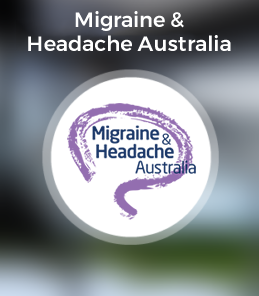Description
Epilepsy is a neurological disorder in which brief, recurrent changes in the electrical activity of the brain lead to seizures or ‘fits’, lasting from a few seconds to several minutes.
During an epileptic seizure, brain cells may fire at many times their normal rate. In a partial seizure, only a part of the brain is involved, while in a primary, generalised seizure, the entire brain is involved. Seizures can also be classified according to the nature of the attack as:
- convulsive, in which there is a loss of consciousness, along with muscle contraction and jerking limbs [also known as tonic clonic seizures (previously known as ‘grand mal’)], and
- non-convulsive, which can be further classified as:
- ‘Absence’ seizures [also known as ‘petit mal’] – these mostly affect children and adolescents. Although there is a brief loss of consciousness, lasting for up to 30 seconds, there is no change in body position;
- simple partial seizure – these have widely varied symptoms but there is no loss of consciousness. Depending on the area of the brain involved, limbs may jerk, or the patient may experience abnormal tastes or smells, or emotional states; as well as unusual behaviour such as lip-smacking or repetitive hand movements.
- complex partial seizures – like simple partial seizures, these may also have widely varied symptoms, however, they involve some alteration in consciousness in addition to what has been described under simple partial seizures.
There are many causes of epilepsy, including an injury to the brain, certain infections such as encephalitis and meningitis, and brain tumours. In the majority of cases, however, the specific cause is unknown.
Treatment
In order to get an accurate diagnosis, and to identify any underlying condition, patients will require a brain scan and a thorough physical examination. In a small number of cases [e.g. brain tumours], once the underlying illness is identified and treated, the seizures will stop.
Drug therapy is successful in preventing seizures in approximately 70–80 per cent of cases. A number of different drugs are used to control seizures, depending on the type of seizure the patient has experienced. These include carbamazepine, ethosuximide, etc.
Surgery may be considered for those patients who suffer frequent or severe seizures that cannot be controlled by medication.
Prognosis
The majority of people with epilepsy are able to live normal lives, with few restrictions on their activities. However, certain occupations involving the use of heavy machinery, working at heights or under water, should be avoided, and people with uncontrolled seizures will be unable to obtain driving licences.
Women with epilepsy should consult their doctors before becoming pregnant, so their medication can be adjusted; however, although there is a slightly increased risk, the majority of babies born to women with epilepsy are free from birth defects.
Some of the Epilepsy research we have funded
In 2022 Dr Alexander Bryson was the recipient of Brain Foundation grant funding for research into Epilepsy – click for more.
In 2021 Dr Hannah Leeson was the recipient of Brain Foundation grant funding for research into Epilepsy – click for more.
In 2019 Dr Emma Foster was the recipient of Brain Foundation grant funding for research into Epilepsy – click for more.
In 2018 Dr Joshua Laing was the recipient of Brain Foundation grant funding for research into Epilepsy – click for more.
In 2019 Dr Lisa Gillander was the recipient of Brain Foundation grant funding for research into Epilepsy – click for more.
In 2019 Professor Vaughan Macefield was the recipient of Brain Foundation grant funding for research into Epilepsy – click for more.
Further Information
Click here for the latest Australian research papers on Epilepsy.
Epilepsy Action Australia
Postal address: GPO Box 9878, Sydney NSW 2000
Phone: 1300 37 45 37
epilepsy@epilepsy.org.au
epilepsy.org.au
Epilepsy Foundation
587 Canterbury Road, Surrey Hills VIC 3127
Ph: (03) 8809 0600
Fax: (03) 9836 2124
InfoLine: 1300 761 487
Email: epilepsy@epilepsyfoundation.org.au
Web: epilepsyfoundation.org.au
Epilepsy Wellbeing Map – The Map is a tool to help you to prepare for consultations with your health care team
The National Society for Epilepsy – UK
www.epilepsysociety.org.uk
American Epilepsy Society
www.aesnet.org
Epilepsy Foundation of America (EFA)
www.epilepsyfoundation.org
Read more at Virtual Medical Centre
Reviewed by Professor John Willoughby, Flinders University and Medical Centre, South Australia
DISCLAIMER: The information provided is designed to support, not replace, the relationship that exists between a patient / site visitor and his / her existing health care professionals.





 The Brain Foundation is the largest, independent funder of brain and spinal injury research in Australia. We believe research is the pathway to recovery.
The Brain Foundation is the largest, independent funder of brain and spinal injury research in Australia. We believe research is the pathway to recovery.